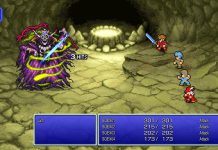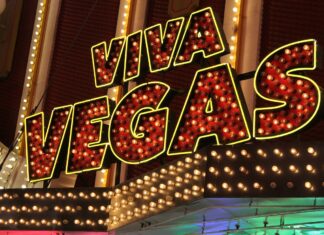After the end of the longest German mobile auction experts and politicians expect positive consequences for consumers. These are, ultimately, a winner of the auction. Finally, there is the entry of the Drillisch group as the fourth German network operator in the future, more competition in the market. “By the fourth network operator in the market will intensify competition, which may come to the consumer Good, such as when the phone will be offered contracts because of the competition cheaper than in the past,” said the Economics Professor Vitaly Grechko of the think tank, ZEW.
After more than 12 weeks, was gone on Wednesday, the auction of mobile radio frequencies to the end. Deutsche Telekom, Vodafone, Telefónica and drill pay table, a total of almost EUR 6.6 billion. New entrants as the network operator Drillisch, in the future, it will be in Germany, so the radio masts of four and not just three companies.
Fullscreen
With Drillisch, a fourth of German network operators is rising soon to be big into the 5G mobile and wireless business.
©Boris Roessler, DPA, “good news for consumers,”
“Drillisch could enter the German market with a modern, customer – oriented pricing models, new momentum- good news for consumers,” says Jens-Uwe Theumer from the price comparison portal Verivox. Even the FDP Bundestag member Frank Sitta evaluated the outcome of the auction is positive: “It is very pleasing that there will be a further mobile communications provider, because more competition leads to lower prices and a better infrastructure for the consumer.”
the Federation of German consumer organisations (vzbv) pointed out that with Drillisch another network operator will compete. “Since competition stimulates business and provides affordable price,” said vzbv chief Klaus Müller, the ‘Rheinische Post’. “Thus, the new provider will also be truly competitive, you need to make the three established network operators a fair offer for the use of the networks in the country.”
the money for the expansion of the grid is Missing now?
Critical tones, there are views of the state revenue. Experts were assumed to be in the run-up to the auction of revenue from three to five billion euros, and now there are nearly 6.6 billion euros, even much more. The leave a “bitter aftertaste” because the billions were missing the mobile market now for the network expansion, criticised the FDP-politician Sitta.
The Green of the Bundestag, Oliver Krischer also had criticism: “The revenues from the auction are far too high – this leads to a slower Expansion of cellular communication.” With the money the Federal government should establish a funding program in the mobile expansion in rural areas, “otherwise, Germany remains a radio hole-Nation”, demanded the Green.
so Far, it is provided that the revenues flow into a special Fund of the Federal government called the “Digital infrastructure”. With 70 percent of the fixed-network broadband expansion should be funded, with 30 per cent better Internet and new technology are to be paid to schools.
The abbreviation ” 5G ” stands for the 5. Mobile radio generation. The Standard is the successor of 4G LTE called. 5G is much faster in the Download and has a lower response time (latency) – data to be practically processed in real-time.
Telekom will secure most of the blocks
And who is in the auction now? The auction theorists Grechko evaluates the output as a small setback for Drillisch and this on the basis that the company was outbid at the end, and thus a Block is less got than in the week long struggle sought. Well, Deutsche Telekom and Vodafone have cut off from the point of view of Grechko. “You have to get exactly what you wanted.” However, you have to grab much deeper in the pocket than I thought. Telefónica presented Grechko moderate testimony.
Of the 41 frequency blocks, the most allotted to Deutsche Telekom, the former state monopolist, was able to win 13 blocks and has to pay 2.17 billion euros. On Vodafone 12 blocks for 1.88 billion euros, and to Telefónica 9 for 1.42 billion Euro are allocated. Drillisch was able to secure 7 blocks for 1.07 billion euros – the daughter company of the Rhineland-Palatinate group United Internet has no own network, instead it is using so far, antennas of the competition.


















